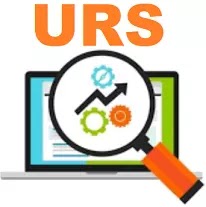


Introduction
URS (User Requirement Software) is a document usually used in
software engineering that specifies what the user expects the software to be able
to do. The URS describes technical requirements in all aspects of any equipment
that the organization decides to purchase for its productivity. In addition, it
includes commercial terms including shipping, payment terms, warranty, and
what to do in the case of any disputes.
Importance of URS Documents
A properly written URS helps the supplier or vendor to fully understand the client’s requirements. This, in, turn, helps the supplier design a system or specialized equipment that completely satisfies needs and expectations. Alternatively, if there is no URS, it can create confusion between both parties blaming each other for failures resulting in the waste of time and resources.
For some industries, a URS also helps with the completion of regulatory
requirements. Some regulatory bodies require that the URS is completed before
the purchase of any equipment. It also forms a basis for validation activities
including installation qualification (IQ) and operation qualification (QQ).
A properly written URS can even help with handling disputes if they arise,
preventing the termination of business between two parties. For example, it can
suggest consulting third-party resources with mutual consent if the problem has
gone far beyond the limits of both.
Key Sections of URS
The design and format of each URS vary from organization
to organization and depend on the requirements of the individual organization.
However, there are key parts of every URS that can be classified into the following
sections:
1. Objective
2. Technical specifications
3. Design Data
4. Documentation
5. Installation and commissioning
6. Delivery
7. Training
8. Commercial terms
9. Approvals
Objective
The objective includes the basic overview and first impression of the
client’s requirements. In other words, it states everything the client requires from
the supplier, it can include:
Technical Specifications